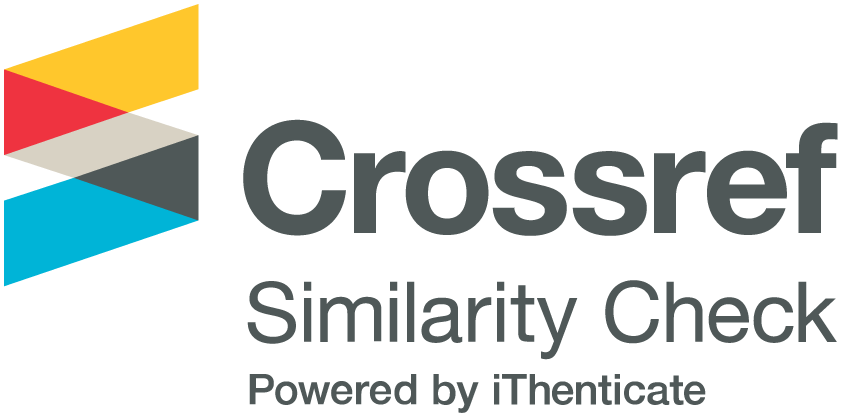Cyberhate victimization among young people: a gender and generational perspective
DOI:
https://doi.org/10.54790/rccs.54Keywords:
cyberhate, young people, gender, social networks, victimizationAbstract
Hate speech-related behaviors on the Internet among adolescents and young people are causing concern in the international community. This paper collects the results of a survey to 600 young people on experiences of being a victim of unpleasant comments on social networks for different reasons. The results are analyzed descriptively by sex and age groups; according to the reason for having received these offensive or hateful comments. The most frequent reasons were socio-political opinions, followed by opinions on feminism. Differences were found to be associated, on the one hand, with gender only for opinions on feminism and, on the other hand, with age, nationality or origin and opinions on feminism. One of the main causes of being a victim of offensive or hateful comments are related to opinions on feminism and gender, more among women than men and among adolescents than young people.
Downloads
Metrics
References
Álvarez, E., Heredia, H. y Romero, M. F. (2019). La Generación Z y las Redes Sociales. Una visión desde los adolescentes en España. Revista Espacios, 40(20).
Amnistía Internacional (2017). Unsocial Media: The Real Toll of Online Abuse against Women. Medium. https://medium.com/amnesty-insights/unsocial-media-the-real-toll-of-online-abuse-againstwomen-37134ddab3f4 [acceso 2 de mayo de 2023].
Bailey, M. (2021). Misogynoir transformed: Black women’s digital resistance. New York: New York University Press. https://doi.org/10.18574/nyu/9781479803392.001.0001 DOI: https://doi.org/10.18574/nyu/9781479803392.001.0001
Banaji, S. y Bhat, R. (2021). Social Media and Hate. London: Routledge. https://doi.org/10.4324/9781003083078 DOI: https://doi.org/10.4324/9781003083078
Bonet-Martí, J. (2021). Los antifeminismos como contramovimiento: una revisión bibliográfica de las principales perspectivas teóricas y de los debates actuales. Teknokultura. Revista de Cultura Digital y Movimientos Sociales, 18 (1), 61-71. https://doi.org/10.5209/tekn.71303 DOI: https://doi.org/10.5209/tekn.71303
Bustos Martínez, L., De Santiago Ortega, P. P., Martínez Miró, M. A. y Rengifo Hidalgo, M. S. (2019). Discursos de odio: una epidemia que se propaga en la red. Estado de la cuestión sobre el racismo y la xenofobia en las redes sociales. Mediaciones Sociales, 18(0), 25-42. https://doi.org/10.5209/meso.64527 DOI: https://doi.org/10.5209/meso.64527
Cuenca-Piqueras, C., Fernández-Prados, J. S. y González-Moreno, M. J. (2020). Face-to-face versus online harassment of European women: Importance of date and place of birth. Sexuality & Culture, 24(1), 157-173. https://doi.org/10.1007/s12119-019-09632-4. DOI: https://doi.org/10.1007/s12119-019-09632-4
Fernández Prados, J. S. y Cuenca-Piqueras, C. (2023). Generaciones de jóvenes españoles y las tecnologías: brechas digitales y ciudadanía digital. En R. González-Andrío y C. Bernal-Bravo (Eds.), Participación ciudadana, redes sociales y educación para el siglo XXI. Madrid: Editorial Dikynson. (en prensa).
Fernández-Prados, J. S. y Lozano Díaz, A. (2022). La participación digital: teorías, evolución, funciones y prácticas. En O. Valverde y M. Martín (Eds.), Mirando hacia el futuro. Cambios sociohistóricos vinculados a la virtualización (pp. 285-304). Madrid: CIS.
Fernández Prados, J. S., Lozano-Díaz, A., Cuenca-Piqueras, C. y González-Moreno, M. J. (2021). Analysis of Teenage Cyberactivists on Twitter and Instagram around the World. En IEEE (Ed.), 9th International Conference on Information and Education Technology (pp. 480-483). Okayama, Japón: IEEE. https://doi.org/10.1109/ICIET51873.2021.9419619 DOI: https://doi.org/10.1109/ICIET51873.2021.9419619
García-Mingo, E. y Díaz Fernández, S. (2022). Jóvenes en la Manosfera. Influencia de la misoginia digital en la percepción que tienen los hombres jóvenes de la violencia sexual. Madrid: Centro Reina Sofía sobre Adolescencia y Juventud, Fundación Fad Juventud. https://doi.org/10.5281/zenodo.7221159.
Ging, D. y Siapera, E. (2018). Special issue on online misogyny. Feminist media studies, 18(4), 515-524. https://doi.org/10.1080/14680777.2018.1447345. DOI: https://doi.org/10.1080/14680777.2018.1447345
Ging, D. y Siapera, E. (Eds.) (2019). Gender hate online: Understanding the new anti-feminism. Cham, Suiza: Springer International Publishing. https://doi.org/10.1007/978-3-319-96226-9 DOI: https://doi.org/10.1007/978-3-319-96226-9
Golbeck, J. (Ed.) (2018). Online Harassment. Cham, Suiza: Springer International Publishing. https://doi.org/10.1007/978-3-319-78583-7 DOI: https://doi.org/10.1007/978-3-319-78583-7
Gonçalves, G. M. y Willem, C. (2021). Lucha feminista gitana en España, lucha interseccional: el combate contra el Antigitanismo en las redes sociales en España. Investigaciones Feministas, 12(1), 127-144. https://doi.org/10.5209/infe.69520 DOI: https://doi.org/10.5209/infe.69520
González-Moreno, M. J. y Cuenca-Piqueras, C. (2022). Breve manual feminista. Textos docentes (vol. 92). Ed. Universidad Almería.
Hanash Martínez, M. (2020). La ciberresistència feminista a la violència digital: sobreviure al Gamergate. Debats: Revista de cultura, poder i societat, 134(2), 89-106. https://doi.org/10.28939/iam.debats.134-2.7 DOI: https://doi.org/10.28939/iam.debats.134-2.7
Hermansson, P., Lawrence, D., Mulhall, J. y Murdoch, S. (2020). The international alt-right: Fascism for the 21st century? London: Routledge. https://doi.org/10.4324/9780429032486 DOI: https://doi.org/10.4324/9780429032486
Jackson, S. J., Bailey, M. y Welles, B. F. (2020). #HashtagActivism: Networks of race and gender justice. London: MIT Press. https://doi.org/10.7551/mitpress/10858.001.0001 DOI: https://doi.org/10.7551/mitpress/10858.001.0001
Kim, B., Wang, Y., Lee, J. y Kim, Y. (2022). Unfriending effects: Testing contrasting indirect-effects relationships between exposure to hate speech on political talk via social media unfriending. Computers in Human Behavior, 137, 107414. https://doi.org/10.1016/j.chb.2022.107414 DOI: https://doi.org/10.1016/j.chb.2022.107414
Lavin, T. (2021). La cultura del odio. Madrid: Capitán Swing.
Lozano-Díaz, A. y Fernández-Prados, J. S. (2021). Young digital citizenship in #FridaysForFuture. Review of Education, Pedagogy, and Cultural Studies. https://doi.org/10.1080/10714413.2021.1929012. DOI: https://doi.org/10.1080/10714413.2021.1929012
Martín, V. G. (2018). Odio en la red. Una revisión crítica de la reciente jurisprudencia sobre ciberterrorismo y ciberodio. Revista de Derecho Penal y Criminología, 20, 411-449.
Ojeda Copa, A., Peredo Rodríguez, V. y Uribe, J. C. (2021). El discurso de odio político en redes sociales durante la coyuntura electoral 2020 en Bolivia. Punto Cero, 26(43), 11-24. https://doi.org/10.35319/puntocero.202143177 DOI: https://doi.org/10.35319/puntocero.202143177
Poland, B. (2016). Haters: harassment, abuse, and violence online. Dulles Town Center, VA: Potomac Books. https://doi.org/10.2307/j.ctt1fq9wdp DOI: https://doi.org/10.2307/j.ctt1fq9wdp
Ramírez-García, A., González-Molina, A. y Moyano-Pacheco, M. (2022). Interdisciplinariedad de la producción científica sobre el discurso del odio y las redes sociales: Un análisis bibliométrico. Comunicar, 30(72), 129-140. https://doi.org/10.3916/C72-2022-10 DOI: https://doi.org/10.3916/C72-2022-10
Richardson-Self, L. (2021). Hate speech against women online: Concepts and countermeasures. Lanham, MD: Rowman & Littlefield. DOI: https://doi.org/10.5771/9781538147801
Santos, S., Amaral, I. y Simões, R. B. (2020). Hate speech in social media: perceptions and attitudes of higher education students in Portugal. Proceedings of INTED 2020 Conference 2nd-4th March 2020 (pp. 5681-5686). IATED. https://doi.org/10.21125/inted.2020.1533 DOI: https://doi.org/10.21125/inted.2020.1533
Smahel, D., Machackova, H., Mascheroni, G., Dedkova, L., Staksrud, E., Ólafsson, K., Livingstone, S. y Hasebrink, U. (2020). EU Kids Online 2020: Survey results from 19 countries. EU Kids Online. London: London School of Economics.
Wachs, S. y Wright, M. F. (2019). The Moderation of Online Disinhibition and Sex on the Relationship Between Online Hate Victimization and Perpetration. Cyberpsychology, behavior and social networking, 22(5), 300-306. https://doi.org/10.1089/cyber.2018.0551. DOI: https://doi.org/10.1089/cyber.2018.0551
Wachs, S., Wettstein, A., Bilz, L. y Gámez-Guadix, M. (2022). Adolescents’ motivations to perpetrate hate speech and links with social norms. [Motivos del discurso de odio en la adolescencia y su relación con las normas sociales]. Comunicar, 71, 9-20. https://doi.org/10.3916/C71-2022-01 DOI: https://doi.org/10.3916/C71-2022-01
Zafra, R. (2018). Redes y (ciber)feminismos. La revolución de la representación que derivó en alianza. Dígitos: Revista de Comunicación Digital, 4, 11-22.
Zempi, I. y Smith, J. (2021). Misogyny as Hate Crime. London: Routledge. https://doi.org/10.4324/9781003023722 DOI: https://doi.org/10.4324/9781003023722
Zunino, F. C., Medina, J. P. y Russell, C. C. (2020). Acoso escolar por orientación sexual, identidad y expresión de género en institutos de educación secundaria catalanes. Revista de Educación Inclusiva, 13(2), 153-174.
Downloads
Published
How to Cite
Issue
Section
License
Copyright (c) 2024 Rocío Ortiz Amo, Cristina Cuenca-Piqueras, María José González Moreno

This work is licensed under a Creative Commons Attribution-NonCommercial-ShareAlike 4.0 International License.










